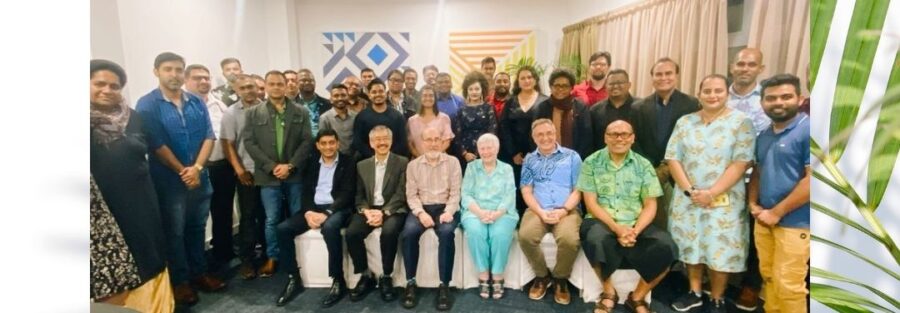In the ever-evolving world of technology, the bridge between academia and industry is vital. Recently, I had the distinct honor of being invited as an industry expert to provide input on the Australian Computer Society (ACS) Accreditation Panel for the University of the South Pacific’s (USP) Bachelor of Software Engineering and Bachelor of Net-Centric Computing courses. This opportunity allowed me to share insights from the industry’s forefront, focusing on what employers are seeking in the realms of software development and networking.
A Unique Perspective as a USP Alumnus
As one of USP’s first Software Engineering students, returning in a capacity that could influence the future curriculum was a full-circle moment for me. My journey, from a curious student to a professional making strides in the tech industry, has been enriched by the foundational knowledge gained at USP. Being a #USPAlumni, I was eager to identify gaps between current educational offerings and the dynamic requirements of the tech industry.
The Heart of the Discussion: Bridging Educational Gaps
During the panel, we delved deep into the competencies of recent graduates and compared them against the ever-shifting landscape of employer expectations in software development and networking. The discussions were illuminating, shedding light on both the strengths of USP’s programs and areas ripe for enhancement. The aim was clear: to ensure that graduates are not just proficient in their technical knowledge but are also equipped with the skills to adapt and thrive in a rapidly changing industry.
Highlighting Strengths and Identifying Improvements
The dialogue was constructive, with numerous points of praise for the existing structure and content of the Bachelor of Software Engineering and Bachelor of Net-Centric Computing courses. However, the essence of progress lies in evolution. We discussed potential improvements that could further align USP’s curriculum with the practical needs of the tech sector. This included an emphasis on soft skills, such as problem-solving, teamwork, and communication, which are increasingly becoming as crucial as technical prowess.
Contributing to the Evolution of Tech Education
My involvement in these discussions was driven by a commitment to contribute to the evolution of tech education at USP. The goal was to ensure that future graduates are well-prepared to meet the challenges and opportunities of the tech industry head-on. By sharing insights directly from the industry, we aimed to create a feedback loop that enriches the academic experience with real-world relevance.
A Call to Collaborative Action
This experience reinforced the importance of collaboration between academia and industry in shaping the future of tech education. As an #IndustryLeader, I witnessed firsthand the positive impact of such partnerships on educational programs. I encourage other industry professionals to engage with academic institutions, sharing knowledge and experiences to prepare the next generation of tech innovators.




